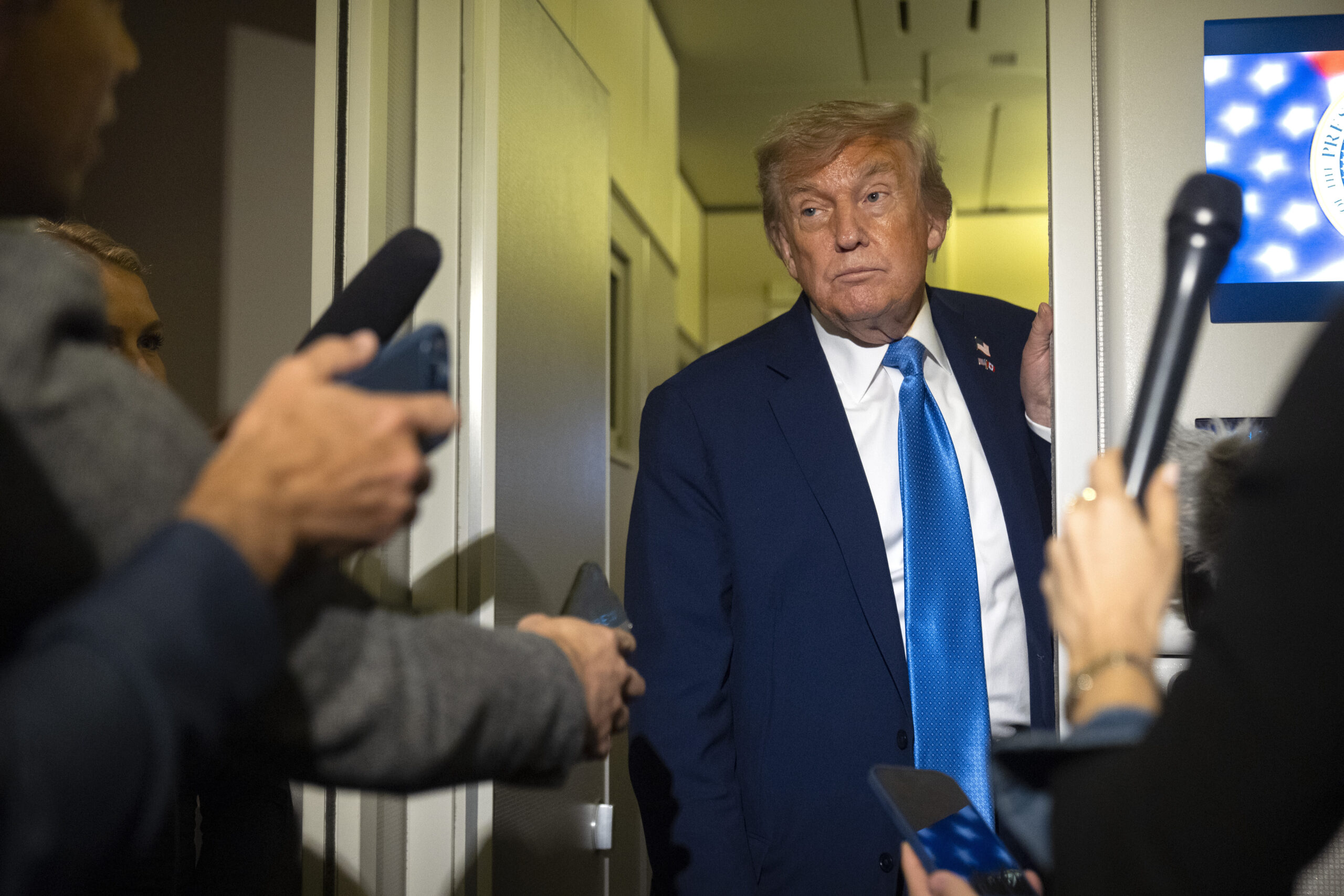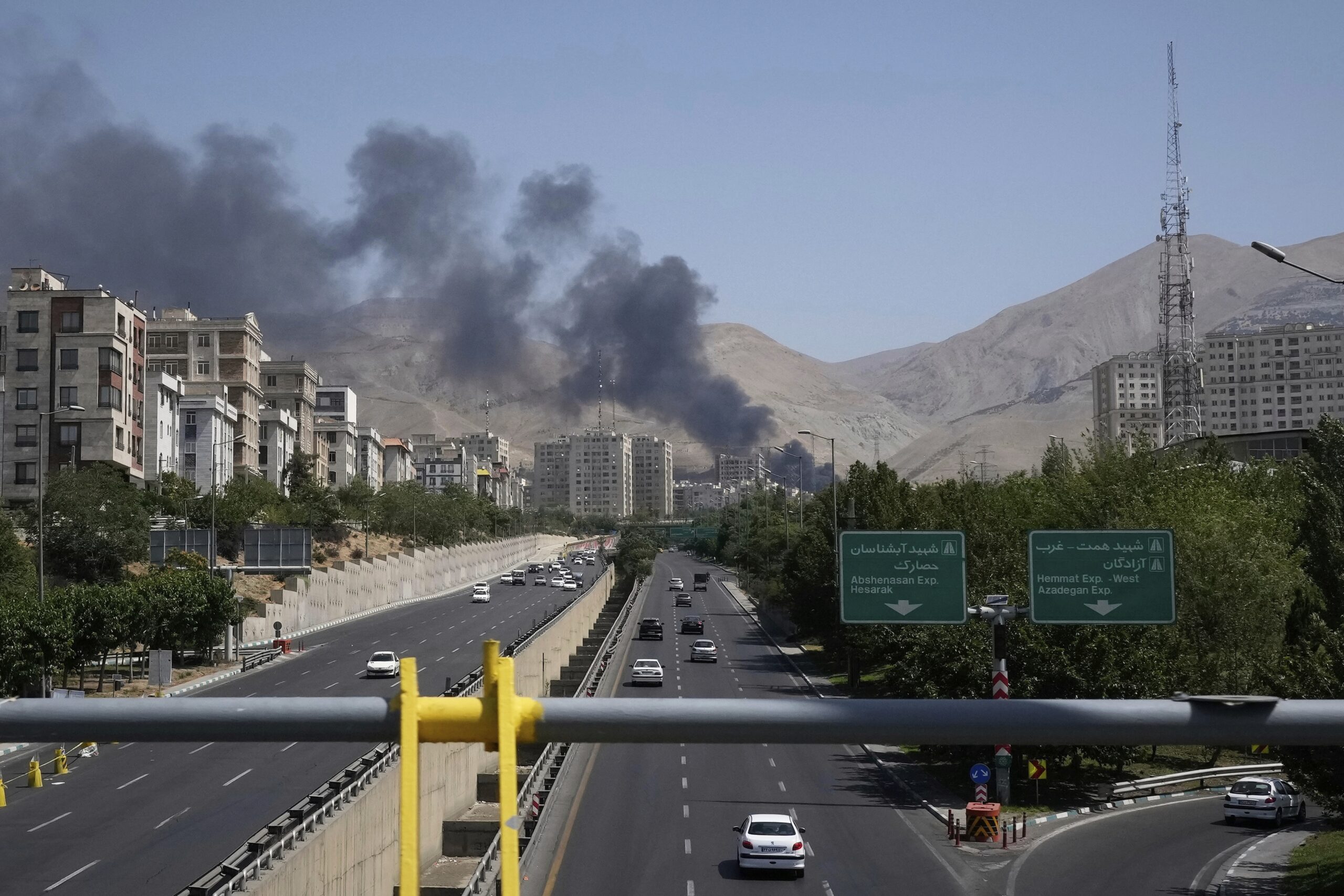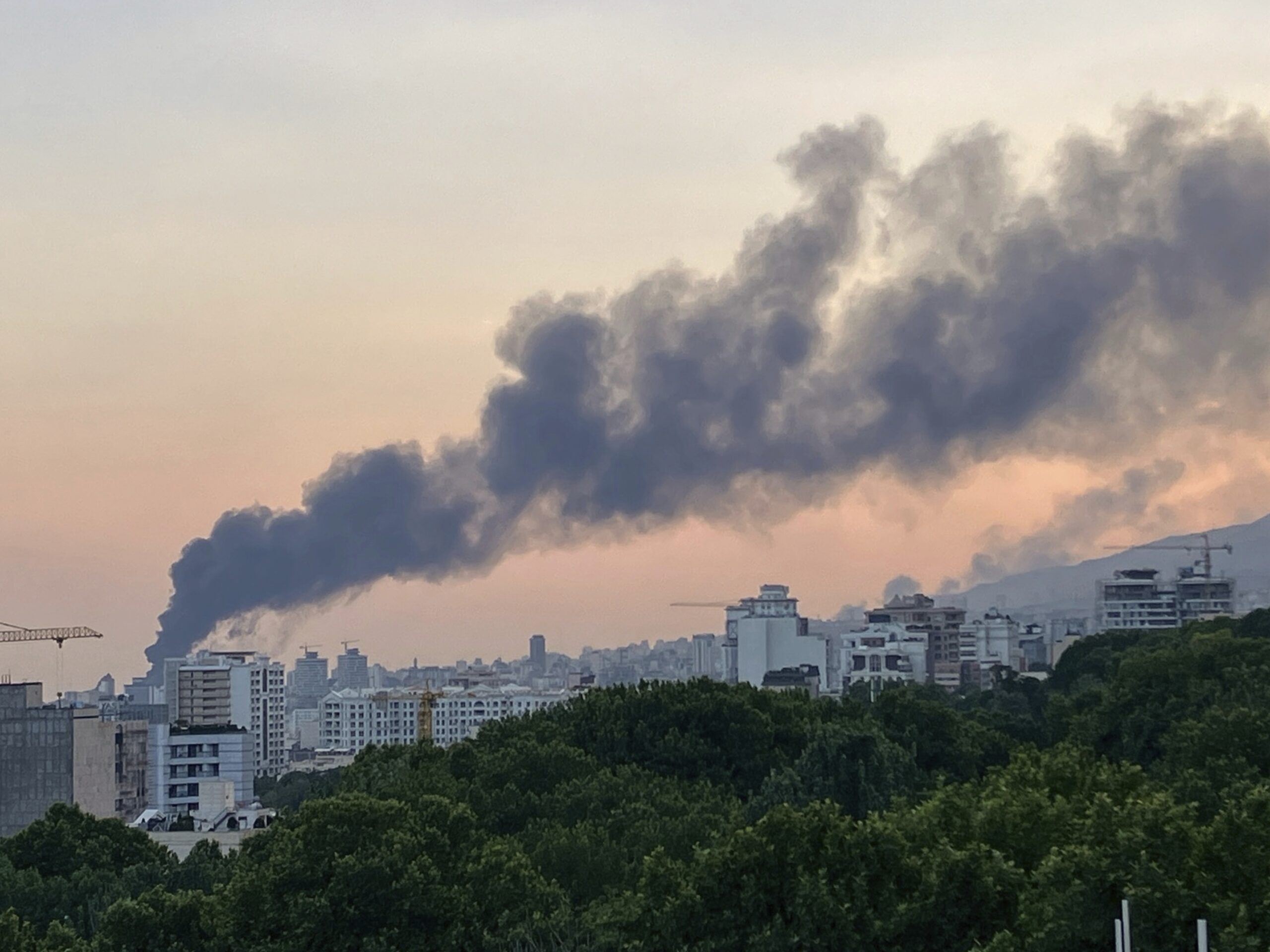
Over the past decade of his political career, President Donald J. Trump has consistently railed against what he cast as military adventurism and “forever wars” conducted by his predecessors, particularly former President George W. Bush. But now that he appears to be moving rapidly in the direction of joining Israel’s war against Iran, Trump seems to be on the brink of getting the United States drawn into another “forever war,” this time against Iran. Trump has been unequivocal that Iran will not be allowed to possess a nuclear weapon since his first administration withdrew in 2018 from the Joint Comprehensive Plan of Action nuclear agreement with Iran by his predecessor, former President Barack Obama. This policy, however, is consistent with that of Democrats including Obama and former President Joseph R. Biden Jr.
When Israel attacked Iran June 13, launching an all-out war on the country by targeting its military leadership, nuclear and missile facilities, and oil refineries, Trump had appeared to be intent on keeping the United States at arm’s length from Israel’s operations. But as Israel’s apparent successes have mounted, Trump seems increasingly ready to join the Israelis, now referring to Israel’s military and strategic posture with the pronoun “we.” And he is reportedly considering major U.S. military action in support of the Israeli war.
The most obvious U.S. military intervention would be an effort to destroy Iran’s Fordow nuclear facility that is buried deep in the mountains near the holy city of Qom. Conventional wisdom holds that Israel, which apparently has not bothered yet to even try to attack the site, lacks the conventional military firepower to do significant damage to such a protected facility. Only the United States, with its ample supply of 3,000-pound bunker buster bombs that would be delivered by stealth B-2 bombers stationed in countries near Iran, or even flying directly from the United States with refueling over the Atlantic, would seemingly be capable of such a knockout blow.
But if Trump were to join Israel’s war against Iran, particularly absent any attack on U.S. personnel or installations in the region that Trump and his senior officials have repeatedly warned against, he risks enraging large parts of the coalition that elected him. There has been a knockdown, drag out rhetorical war between pro-Israel and other hawks and “blood-and-soil” isolationists in the pro-Trump coalition, especially among podcasters and talk show hosts.
Influential podcasters Tucker Carlson and Steve Bannon have been leading the campaign to pressure Trump not to be drawn into Israel’s war against Iran. But radio host Mark Levin and some influential Republican lawmakers, including South Carolina Senator Lindsey Graham and Trump’s own ambassador to Israel, Mike Huckabee, have been arguing that Israel’s war against Iran should be directly supported by a U.S. military intervention, with or without any Iranian provocation aimed at U.S. troops or interests in the region. They argue that the current situation is a unique, generational opportunity to foreclose a nuclear option for Tehran.
In a highly suggestive post on X, outspokenly isolationist Vice President JD Vance appeared to advocate strongly against U.S. military intervention. But he also seemed to recognize that the argument may already be lost, and that Trump may have decided already to commit U.S. firepower to the campaign. Vance implied that there is nothing he can do to prevent this, but also that he declines to accept any responsibility for any negative consequences.
As Vance’s post suggests, the interventionist camp appears to be gaining the upper hand, as Trump has dramatically increased his identification with Israel’s war posture and threats against Iran and its leaders. On Truth Social, he has mused about potentially assassinating Iran’s supreme leader, Ayatollah Ali Khamenei, after reportedly having warned Israeli Prime Minister Benjamin Netanyahu several times in recent months against such an action. He added that the United States is not going to do this, at least for now. He also urged the 10 million Iranian residents of Tehran to evacuate immediately, which might imply a U.S. or Israeli tactical nuclear strike on the capital city or U.S. carpet bombing, the kind of airpower attack not seen anywhere since at least the Vietnam War. It might also merely represent the type of hyped-up bluster Trump has used in the past in confrontations with regimes including North Korea’s.
But if he joins the Israeli campaign against Iran, Trump will face the same question that Israel has been avoiding since it launched the war: What is the endgame? Netanyahu called upon the people of Iran to rise up against the regime shortly after Israel’s military campaign began, suggesting that the most aspirational Israeli goal is indeed regime change. But aerial assaults – even massive ones – combined with sanctions and other pressure, have virtually no history of producing regime changes in authoritarian states. To the contrary, such wars tend to unify the population around even greatly disliked regimes and certainly to increase public dependence on them for basic sustenance. Israel’s attacks on Iran’s national infrastructure, for example its oil refinement capabilities, may seem to many Iranians to confirm the regime’s claims that Israel is an incorrigible and highly dangerous anti-Iranian power that threatens Iranians in general – a claim that has lacked any objective corroboration until now.
The more likely political outcome of a full-on U.S. and Israeli effort to press regime change through external pressure would be political destabilization inside Iran, the rise of ethnic substate power centers on the country’s periphery, and a vicious struggle for power among regime insiders. There is also the distinct danger that a panicked and desperate Iranian regime might lash out at U.S. interests in Gulf Arab countries and destabilize the Middle East.
The Gulf Arab countries had been seeking to prevent an Israeli, and certainly a U.S., war with Iran. They have all concluded that preparing their economies for a post-hydrocarbon future and consolidating their regimes and systems is the paramount goal, and a large new regional war is the last thing they need. But, as usual, they find themselves effectively spectators in decisions that will shape their near and medium terms. As Trump’s bellicosity and apparent endorsement and embrace of Israel’s war have intensified, the Gulf Arab states have been urging all parties to exercise restraint and find a way to end the conflict. Their advice appears to remain unheeded by the White House.
Since his reelection, Trump has sought to convince Iran to voluntarily relinquish its nuclear ambitions through a new agreement. But in recent weeks he reportedly became frustrated with the pace of negotiations and Iran’s responses to his proposals and came to the conclusion that Israel would not be dissuaded from the current action, which is based on Israeli claims that Iran is moving quickly toward building a crude nuclear bomb. U.S. intelligence has rejected these findings, insisting that there is no evidence it is aware of to back up these claims. But, once again, Trump has decided to embrace the self-serving claims of a foreign leader over the findings of U.S. intelligence institutions. When asked about an assessment from Director of National Intelligence Tulsi Gabbard that U.S. agencies continued “to assess that Iran is not building a nuclear weapon,” Trump responded, “I don’t care what she said. I think they were very close to having them.” The competing positions on Iran’s intentions have also been shaped by a recent International Atomic Energy Agency assessment expressing concern about Tehran’s accelerated production of weapons-grade uranium and the regime’s restrained cooperation with the IAEA. The agency found, for the first time in over 20 years, that Iran is out of compliance with its obligations under the Nuclear Nonproliferation Treaty, setting up a potential referral to the United Nations Security Council in the coming months.
The problem for Trump is that any decision to use a military option to foreclose Iranian nuclear ambitions would likely require repeated military actions in the future to prevent Iran from moving in that direction. The Israeli embrace of regime change as a publicly stated goal of the operation will ultimately put Trump in a delicate and dangerous political and strategic situation if the administration embraces the military option. He will be in effect resolving the question of what the actual goal of the “maximum pressure” campaign of sanctions has been all along. Senior officials in his first administration were divided over two contradictory goals: that the pressure was intended to compel Iran to accept more favorable terms for the United States in future nuclear talks or that the real goal was regime change in Tehran.
Any U.S. military intervention joining Israel’s war now doesn’t merely imply that the United States is prepared to use military force to forestall a potential nuclear-armed Iran, even if the U.S. intelligence community has not found that Iran is moving decisively in that direction. It actually likely commits Washington, at least as long as Trump is president, to seeking regime change in Tehran, a far-fetched and highly unlikely scenario absent dramatic and extreme measures, such as an invasion and occupation of the country.
Iran, however, may be moving quickly to salvage its own position and possibly Trump’s as well. An Iranian delegation has apparently been sent to Oman, where the nuclear talks with the Trump administration had been taking place. This may well indicate that Iran is urgently offering or seeking terms with Washington that could forestall any U.S. military intervention, given that Tehran cannot afford to find itself under U.S. as well as Israeli attack and that especially the prospect of a U.S. bunker-buster attack on Fordow could all but complete the virtual obliteration of Iran’s clandestine nuclear sites begun by Israel June 13. Whether Trump will find any new Iranian offer appealing enough to forestall a U.S. entry into the war – a development that would provide policy coherence to Trump’s successful bluff, assuming that’s what it has been – is to be determined. But Iran is clearly trying to avoid an already desperate situation from becoming even more calamitous.
Whether Trump is on the brink of committing the American people to exactly what he has passionately denounced for the whole decade of his major political career – another unwinnable, ill-advised, and open-ended “forever war” in the Middle East – or bluffing right up to refueling the U.S. B-2 bombers remains to be seen. If he actually launches those bombers, one could hardly imagine a policy shift more likely to fracture his coalition and alienate a considerable part of the alliance that delivered him the White House for a second time last November. The compelling factors in his calculus that seem to have overwhelmed his and parts of his coalition’s isolationist tendencies are his sense Israel is heading for a quick victory for which he can claim significant credit and his realization that Netanyahu has outmaneuvered him and left him exposed with a now discredited and undermined negotiations strategy. While these are indeed persuasive factors in the current news cycle, they are likely, in the coming weeks and months, to appear increasingly threadbare and poorly conceived policy rationales for committing the United States to war in these circumstances. This may explain the latest twist – a last-minute diplomatic gambit that would if successful make the bluffing and policy lurches look brilliant and obviate the need for any U.S. military intervention.
The views represented herein are the author's or speaker's own and do not necessarily reflect the views of AGSI, its staff, or its board of directors.































